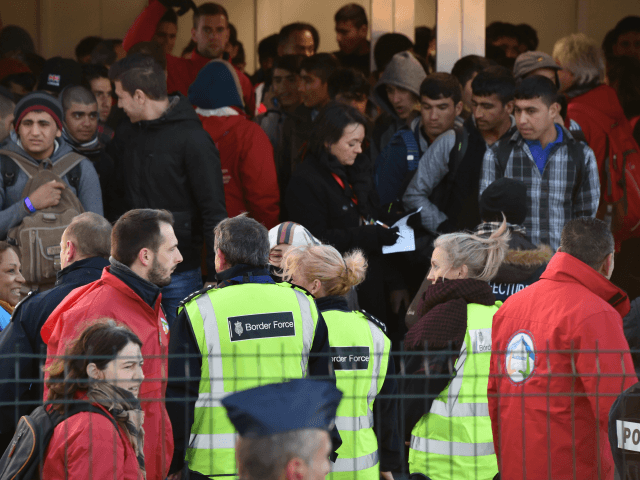British workers on low incomes will likely get a pay rise if immigration falls after Brexit, a European Commission-funded think tank has admitted.
The National Institute of Economic and Social Research (Niesr) said that net migration from European Union (EU) countries could fall by as much as 150,000 a year after Britain leaves the bloc, resulting in wages for low-income jobs rising by as much as 0.5 per cent by 2030.
Without undercutting competition from immigrants, low-paid workers in sectors such as catering, care services and hotels may see a wage rise of 0.12 per cent by 2020 and 0.51 per cent by 2030.
Breitbart London reported in May how the Niesr is partially funded by the European Commission, as well as from the Economic and Social Research Council, which also receives EU funding.
Although it does not receive direct government funding, it has undertaken research commissioned “from a variety of sources” including “government departments and agencies” and “the European Commission.”
The revelation came after the group issued a doom-laden forecast for post-Brexit Britain warning of skyrocketing prices, a massive devaluation of the pound, and no end in sight to high immigration.
The think tank issues similar warnings in its latest report, saying that a fall in immigration could reduce GDP per capita in 2030 by up to 5.4 per cent below what it would otherwise have been.
It predicts a fall of 91,000 per year in EU immigration in the years to 2020, possibly rising to 150,000 if migration is more tightly controlled.
Figures released last week showed immigration to be at an all-time high before the Brexit vote.
The Office for National Statistics put net migration at 335,000 between July and September 2016, of whom 189,000 were from the EU.
However, some 824,000 migrants registered for National Insurance Numbers (NINos) to allow them to work in the UK, of whom around 629,000 were from the EU.

COMMENTS
Please let us know if you're having issues with commenting.